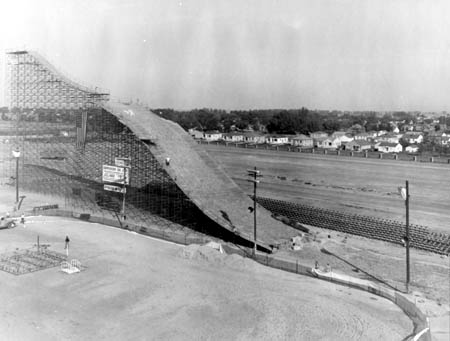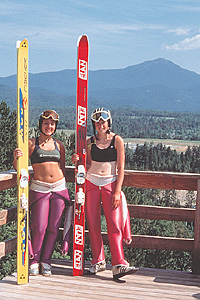Much like that of the image (A)
below, a ski jumper will follow will follow the same path starting at
the top of (h). However, for slow motion drag is not included in
the acceleration, only gravity. For the case of a ski jumper it
is ideal to maximize their surface area by leaning forward in order to
increase the drag. This maximizes their distance in the positive
x direction, due to their ability to use drag to the jumpers
advantage. The result is the jumpers ability to go farther down
the jump and closer to the end in image (B).
A B
A B


http://www.physicsdemo.com/xlab-projectile.htm
http://historytogo.utah.gov/wntrrecskijump.html
The two key equations derived from Physics (from USAFA) that apply to ski jumping are as follows:
Vf = Vi + a*t
d = Vi*t + a*t^2^
Where:
Vf= Velocity Final
Vi= Velocity Inital
a= acceleration (with gravity and drag included)
t= time
d=distance
Here is a good example of how far the ski jumper will go based on their ability to create more drag:
(which will be discussed in further detail in the next page.)
This Jumper will go very far, and showing really good technique with maximum surface area exposed: On the other hand, these two jumpers will go no where. (Poor Technique!):


http://176-m236.summer.com/schools/sss/physics/physics12/Kinematics/ski_jumping_physics.htm
http://www.lakeplacidresort.com/gallery14.html
Index
The History and Overview of Ski Jumping
The Physics Behind Ski Jumps
Using Physics to Aid the Jumper
Improvements to Ski Jumping
Bibliography